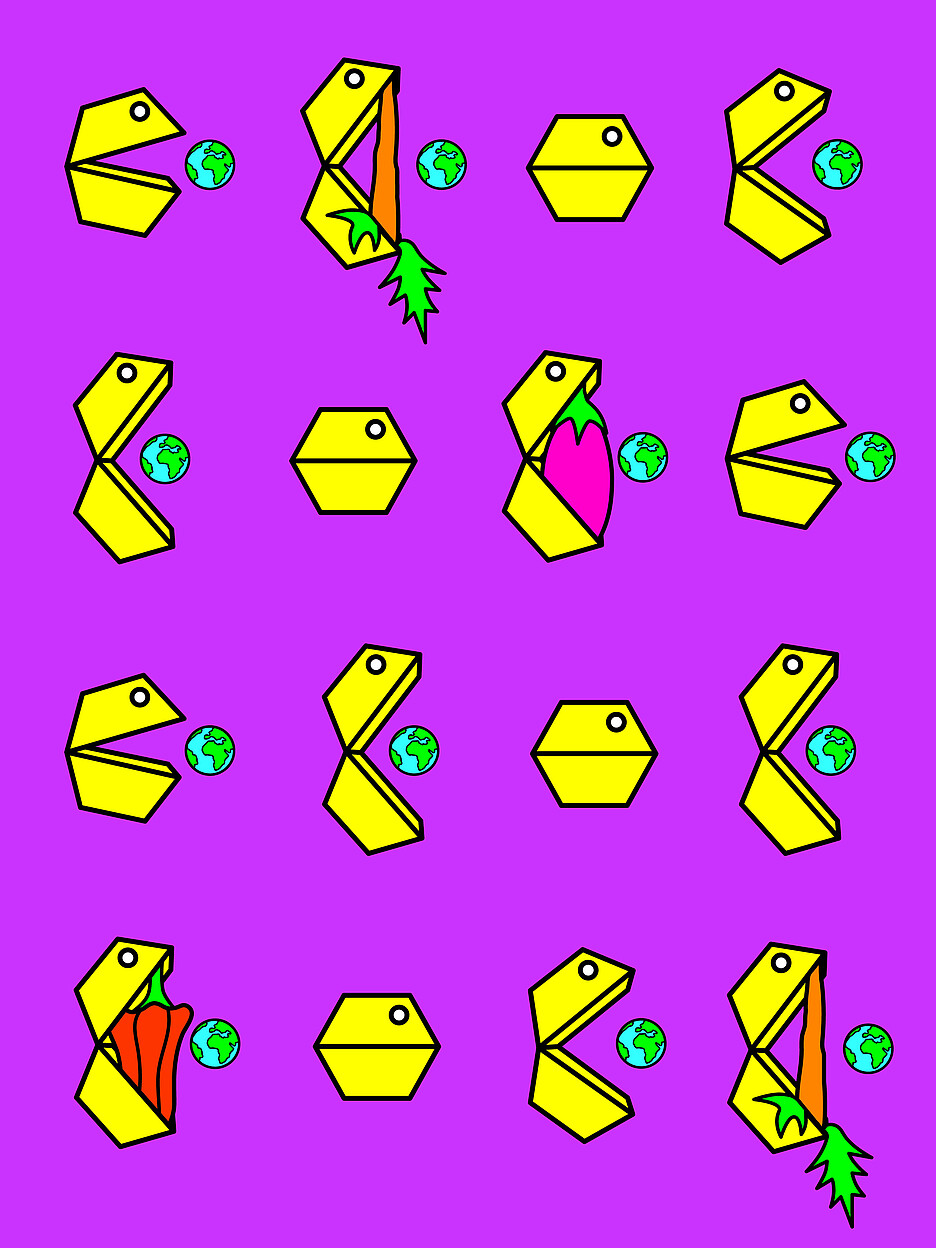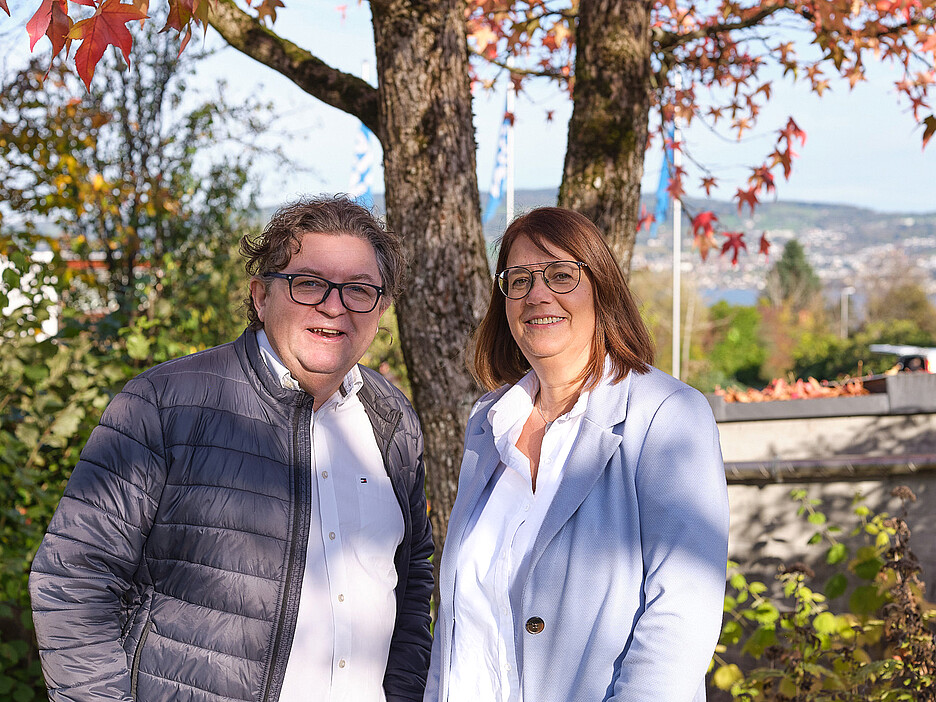
Planetary Health: why food chains have to become food networks
After the most recent climate summit, we are left with no choice but to ask ourselves once more whether our planet can still be saved. And if it can, how? These are the questions addressed in the new “Planetary Health” series of the ZHAW’s Impact web magazine. In the opening episodes of the series, ZHAW researchers Gisela and Tilo Hühn explain how we can save the world with food. The insights they provide are by no means a light bite. Instead, they serve up a feast of information, detailing what is wrong with our food system and what negative impacts it has on the environment. While they don't offer any guaranteed recipes for ensuring our planet’s recovery, they plate up morsels of knowledge and brain food aimed at promoting further thought and discussion. After all, “the battle to save the planet will be won at our dinner tables.” There is still a long way to go before we can sit back and enjoy a well-deserved dessert.
The reason we are facing a crisis is clear: The number of people on the planet is growing and thus also the volume of resources being consumed. The date on which Earth Overshoot Day falls is moving ever closer to the start of the year and we are likely to reach the tipping point in climate change at the midpoint of the decade.
Going without certain foods won’t suffice
Our current food system, in particular, has a very negative impact on our environment. And this would still be the case even if we were to become more modest in our consumption from now on: Going without certain foods will not be enough on its own to halt the downwards spiral. We need to get to work and actively repair our planet with a new kind of system that will help our current agrifood systems overcome the dilemma they face.
The big dilemma
This dilemma lies very much in the sequential and linear value chain, which starts with the production of seeds, fertilisers and pesticides before incorporating the agriculture, food processing and transport industries and finally the retail and gastronomy sectors. Each link in this chain specialises in its own area, hardly ever looking beyond the end of its own nose. And those that do expand their horizons do so no further than the directly adjacent links. This is why each area tries to reap the optimum benefits for itself, irrespective of the damage that may be caused as a result.
Devalued

There is also the fact that for years food chains have been trimmed with the aim of achieving greater efficiency and lower costs. This has led both to a concentration of powerful players, as well as to a murderous or even suicidal level of price and cost pressure. Resources, food, labour and the environment have been devalued. For the Western world, the price tag of food became the most important factor. In other words, the cheaper the better.
Standardisation for the mainstream
Expertise of managing production in harmony with nature disappeared and was replaced by a regime of standardisation and the more intensive use of resources. This had negative consequences for the environment, including an increase in the amount of food waste, depleted arable land and hundreds of yoghurt varieties that all taste similar in order to please the mainstream.
Ever larger and more colourful packaging
Consumers heard little about these developments and the dilemma faced by our agrifood systems. On the contrary: As manpower and financial resources were shifted away from production to marketing, the asymmetry in information grew markedly. With ever greater marketing efforts, a picture was painted of unlimited variety. Packaging became ever larger and more colourful, with food’s environmental footprint increasing as a result.
Changing level of awareness
Fortunately, a change in thinking is gradually emerging, thanks in no small part to modern media. There is a growing realisation among consumers that their purchasing decisions are very significant in terms of the loss of our planet’s biodiversity and climate change and this has led to them expanding their knowledge. They recognise that by turning away from an agricultural sector that knows about the importance of self-preservation and acts accordingly, we have set upon a path that may have a drastic end. Issues such as health, sustainability, climate change, animal welfare, availability and regenerative agriculture are increasingly moving into the spotlight and are bringing about changes in our awareness and behaviour.
Everyone bears responsibility
It is becoming clear that a fundamental change in process models is needed, with value chains being transformed into value networks. This process would also involve consumers, customers and prosumers, i.e. individuals who both produce and consume. If everyone is linked to everyone else in the network, responsibility is borne by many players. Nobody can steal away and shift the blame for environmental damage onto others, and certainly not onto the great anonymous general public. The way would then be clear for the establishment of a network underpinned by a new responsible and regenerative economy, which is so urgently needed if we are to tackle the impending crisis and steer away from the tipping points.
About the authors

Thinking and writing the unexpected is the motto of Gisela and Tilo Hühn, while their concept of life is underpinned by the endeavour to act responsibly together, adopt a reflective approach and make a difference. They work as researchers and lecturers at the ZHAW: Gisela Hühn as a member of the Food Process Development Research Group and Tilo Hühn as Head of the Centre for Food Composition and Process Design. Whether they are at the university or sat around their kitchen table, both enjoy joining forces or collaborating with others to discuss and work on future food systems and the question of how to get more of the goodness out of agricultural products during processing.
-
B
Thank you Gisela and Tilo for creating new foodiversals
1 Comment